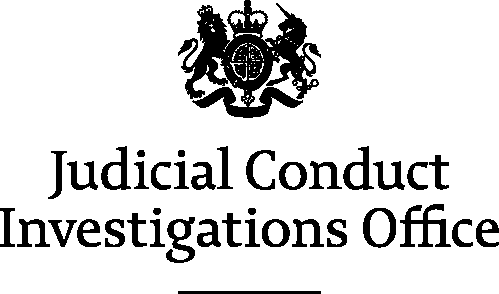




JCIO 34/25
Date: 15 August 2025
A spokesperson for the Judicial Conduct Investigations Office said:
The Lord Chancellor, with the Lady Chief Justice’s agreement, has removed Mr John William David Armitage JP, of the South London Local Justice Area, from office for misconduct.
Facts
Magistrates sign a declaration and undertaking on appointment to be circumspect in their conduct and maintain the dignity, standing and good reputation of the magistracy at all times. A Conduct Advisory Committee carried out an investigation after it was reported that Mr Armitage had disclosed information which he obtained in his capacity as a magistrate to members of an organisation with which he was affiliated, concerning proceedings connected to that organisation. Mr Armitage’s disclosure was capable of revealing the identity of an alleged victim in a sexual abuse case, which is prohibited under section 1 of the Sexual Offences (Amendment) Act 1992 (the Act).
Mr Armitage’s representations
Mr Armitage stated that at the relevant time, he was unaware of the anonymity provisions in the Act. Mr Armitage stated that he had obligations to the magistracy and the organisation, but ultimately felt that he had a duty to inform the organisation of an impending risk. Mr Armitage stated that, whilst his sharing of information may not have been the correct thing to do, it was done inadvertently and with the best of intentions.
Nominated Committee Member’s findings
Following an investigation carried out under the Judicial Conduct (Magistrates) Rules 2023, a nominated committee member concluded that Mr Armitage’s actions amounted to gross misconduct and recommended that Mr Armitage be removed from office. Mr Armitage subsequently exercised his discretion to refer the matter to a disciplinary panel to consider the complaint
Disciplinary Panel’s findings
The disciplinary panel concluded that Mr Armitage’s actions amounted to gross misconduct and recommended his removal from office. In making their recommendation, they acknowledged that Mr Armitage was remorseful, had accepted full responsibility, and had no previous findings of misconduct. However, the disciplinary panel also took into account that Mr Armitage had acted without seeking advice from his bench leadership or court legal adviser, and that the public confidence in the judiciary would be undermined if Mr Armitage were to remain in post after gross misconduct.
Decision
The Lady Chief Justice and Lord Chancellor agreed with the disciplinary panel’s recommendation to remove Mr Armitage from office.
Sanctions for misconduct by judicial office-holders are set out in the Constitutional Reform Act 2005. They are, in order of severity: formal advice, formal warning, reprimand and removal from office.
For more information about the Office, including details on how to make a complaint against a judicial office holder, you can visit the JCIO website at: Judicial Conduct Investigations website